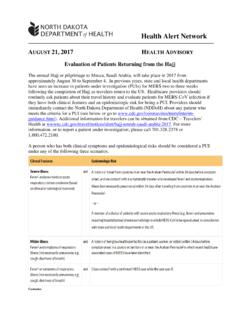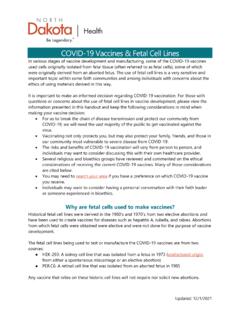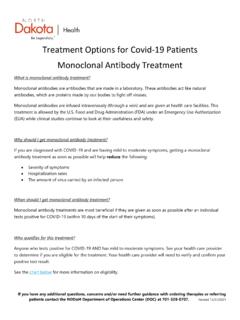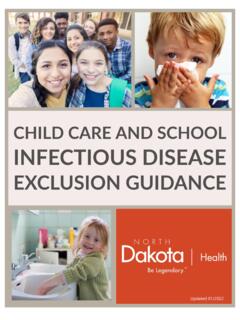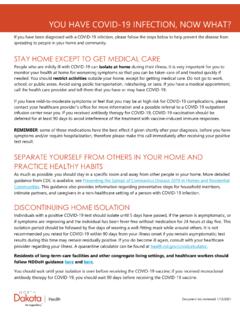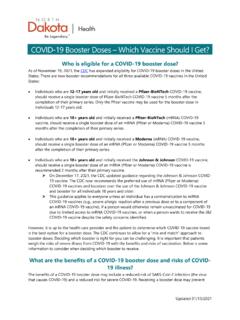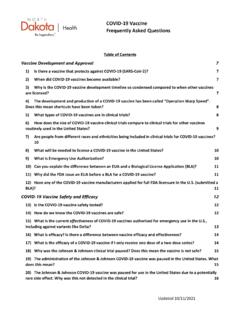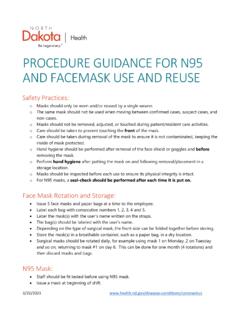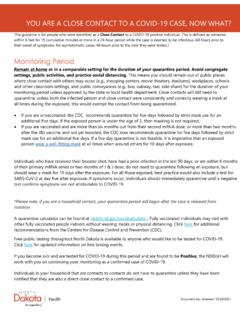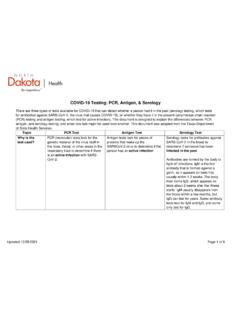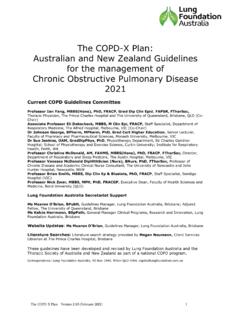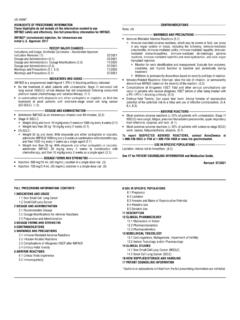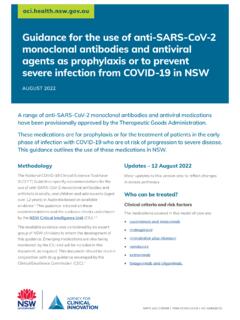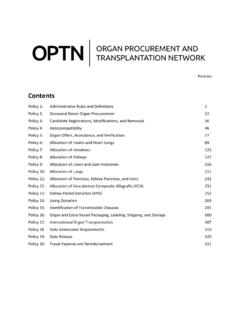Transcription of What is considered an underlying medical condition for ...
1 Updated: 12/9/21 What is considered an underlying medical condition for severe COVID-19? Adults of any age with certain underlying medical conditions are at increased risk for severe illness from the virus that causes COVID-19. Severe illness means that an individual may need hospitalization, intensive care, a ventilator to help them breathe, or may die from the virus. It is important to note that the underlying medical conditions listed below are not an exhaustive list and only include conditions with sufficient evidence to draw conclusions. Individuals with any underlying medical conditions (including those NOT on the list below) should consult with their healthcare provider about their own personal risk factors associated with illness from COVID-19.
2 underlying medical conditions that put adults at increased risk for potential severe and life-threatening outcomes from COVID-19: Cancer Cerebrovascular disease Chronic kidney disease Chronic liver disease Chronic lung disease Dementia or other neurological conditions Diabetes (type 1 or type 2) Down syndrome Heart conditions HIV infection Immunocompromised state Mental health conditions Overweight and obesity Pregnancy Sickle cell disease or thalassemia Smoking, current or former Solid organ or blood stem cell transplant Stroke or cerebrovascular disease Substance use disorders Tuberculosis underlying medical conditions that put children at increased risk for potential severe and life-threatening outcomes from COVID-19.
3 Current evidence suggests that children with medical complexity, with genetic, neurologic, metabolic conditions, or with congenital heart disease can be at increased risk for severe illness from COVID-19. Similar to adults, children with obesity, diabetes, asthma or chronic lung disease, sickle cell disease, or immunosuppression can also be at increased risk for severe illness from COVID-19. Want more information on underlying medical conditions? Check out the CDC website here. Want to find COVID-19 vaccine in your area? Check out the NDDoH website here. A person with a condition that is not listed above may still be at increased risk of severe outcomes from COVID. It is important to speak with your healthcare provider about steps you can take to manage your health and risk.
4 In general, the older you are, the more health conditions you have, and the more severe the conditions, the more important it is to take preventive measures against COVID-19 such as vaccination, wearing a mask, social distancing, and practicing hand hygiene. Everyone 18 and older should be vaccinated and receive a COVID-19 vaccine booster shot when they are eligible. On December 9, 2021, the FDA expanded the use of a single booster dose of the Pfizer COVID-19 vaccine for administration to individuals 16 and 17 years of age at least six months after completion of a primary series of the Pfizer COVID-19 vaccine. Please see the CDC website for greater detail.
